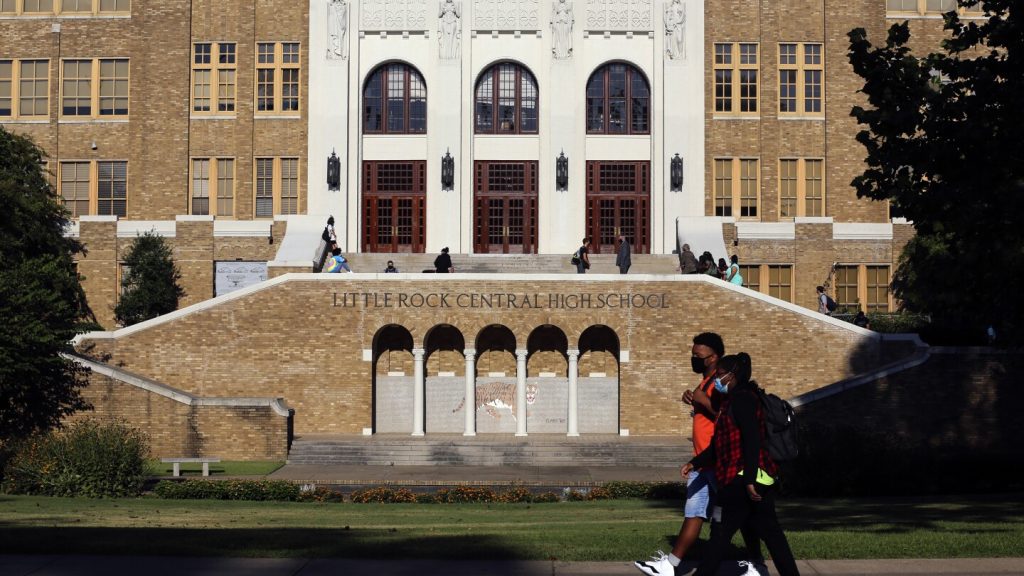In a recent ruling, a federal judge in Arkansas has prohibited the state from preventing two high school teachers from discussing critical race theory in the classroom. However, the judge did not extend this block to the broader enforcement of the state’s ban on “indoctrination” in public schools. The ban on indoctrination was part of an education overhaul signed into law by Republican Governor Sarah Huckabee Sanders last year. The prohibition was challenged by two teachers and two students at Little Rock Central High School, which was the site of the 1957 desegregation crisis.
The ruling by U.S. District Judge Lee Rudofsky stated that the state’s arguments clarified that the law does not completely prevent classroom instruction that teaches, uses, or refers to any theory, idea, or ideology. He specifically prohibited the state from disciplining the teachers for teaching, mentioning, or discussing critical race theory – an academic framework dating back to the 1970s that focuses on the idea that racism is embedded in the nation’s institutions. Although his ruling was narrow, Rudofsky expressed that teachers in the state can still teach, use, or refer to critical race theory or any other theory, ideology, or idea as long as they do not compel their students to accept it as valid.
Despite the narrow scope of the ruling, Rudofsky mentioned that teachers would still be barred from actions such as grading students based on whether they accept or reject a theory, or giving preferential treatment based on their acceptance of a theory. Both the state and the attorneys for the teachers claimed the ruling as an initial victory in the ongoing litigation over the law. The attorneys for the teachers and students expressed satisfaction with the court’s acknowledgment of their constitutional claims and looked forward to continuing the case.
The lawsuit that led to this ruling stemmed from the state’s decision that an Advanced Placement course on African American Studies would not count toward state credit in the 2023-2024 school year. The teachers argue that the state’s ban on indoctrination is so vague that it forces them to self-censor what they teach in order to avoid violating the law. Arkansas is among several Republican-led states that have implemented restrictions on how race is taught in the classroom, including bans on critical race theory. The ruling in this case has been seen as a blow to the enforceability of Arkansas’ classroom censorship law.
In a statement reacting to the ruling, Republican Attorney General Tim Griffin mentioned that the decision confirms his assertion that Arkansas law does not prohibit teaching the history of segregation, the civil rights movement, or slavery. The attorneys representing the plaintiffs in the case, including the Educational Opportunities Project at the Lawyers’ Committee for Civil Rights Under Law, viewed the ruling as essentially gutting Arkansas’ classroom censorship law and rendering it virtually meaningless. This case is part of a larger trend where educators in Republican-led states are challenging restrictions on teaching certain concepts of race, gender, and bias in the classroom.


